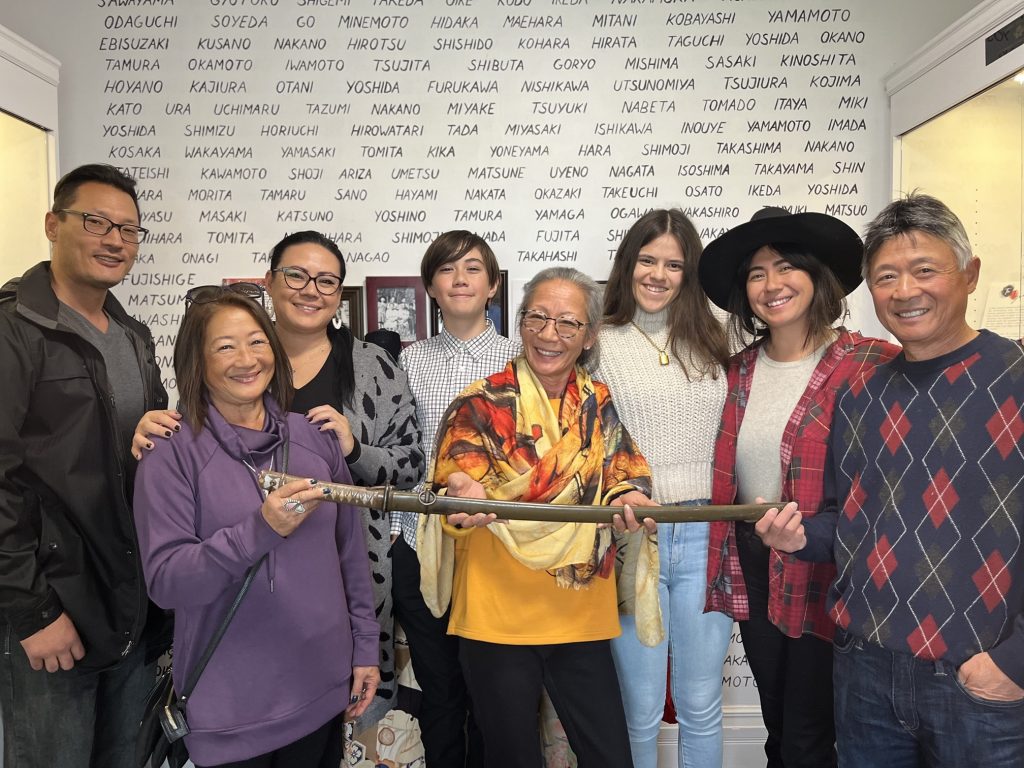Tokutaro (Pop) Tsuyuki arrived in Canada in 1907. He was acquainted with Jiro Inouye, often referred to as the Japanese Mayor for Maple Ridge, who encouraged him to acquire land and make his own living rather than depend on non-Japanese for jobs.
He acquired property in Albion and began growing soft fruits including strawberries, raspberries and loganberries. In 1917, Tokutaro sent to Japan for a bride he had only seen in pictures. Tori Hara left everything she had ever known behind and came to this strange place to marry a man she knew nearly nothing about. As soon as they were married, she joined Tokutaro on his place in Albion where she helped with the fruit-growing and greenhouse operation while bearing six children (all of whom were delivered by her husband), with five surviving into adulthood. Tokutaro even delivered a few babies for Japanese Canadian neighbours. This male midwifery was certainly unusual, even in the days when doctors were scarce, and Tokutaro was justly proud of this particular accomplishment.
Read more about the Japanese Community in Maple Ridge

In 1928 the family built their first greenhouse on the Albion property. After a fire and rebuilding, the greenhouse operation was a thriving business by 1939 when the world of Japanese Canadians in Maple Ridge began to fall apart.
In 1942, Japanese Canadians were ordered to report to Hastings Park in Vancouver, where they were given a choice in their fate.* Their options were living in an internment camp for the duration or starting a new business in the interior by arrangement with land owners. Tokutaro chose the latter and moved his family to Lillooet where they began another greenhouse operation to grow tomatoes on the property of a Lillooet farmer. In exchange for their use of the land, they were to grow and process hay for the farmer’s livestock.

In 1949, after having buried his wife in Lillooet, Tokutaro and his children left their second greenhouse business and returned to the coast to attempt to regain their former property. Their neighbour had taken over their operation and had promised to sell it back for what he had paid, but he reneged as the Tsuyuki greenhouses had been fully integrated into his own successful operation and he was not willing to part with them. Tokutaro swallowed his anger and walked away.
In 1950, for the third time, Tokutaro began again in Surrey with the help of his son Taka (Norm) and son-in-law Jim Yoshizawa.

Because of the internment of Japanese Canadian families, it has been a real struggle for the Maple Ridge Museum to get hold of their stories. With the Tsuyuki family, we were very fortunate that Tokutaro’s son, Taka (Norm), wanted their story told. Norm passed away shortly after sharing his story with us. He and his sibling’s descendants have since graciously continued to engage with the Museum and Archives, helping us tell their story in its fullness.

*It was previously erroneously stated that Tokutaro Tsuyuki had served Canada in the First World War. In reality, his employer had earned him an exemption by making the case that his presence in Canada was necessary for the farm.
Updated with corrections by Gordana on October 24, 2023.
